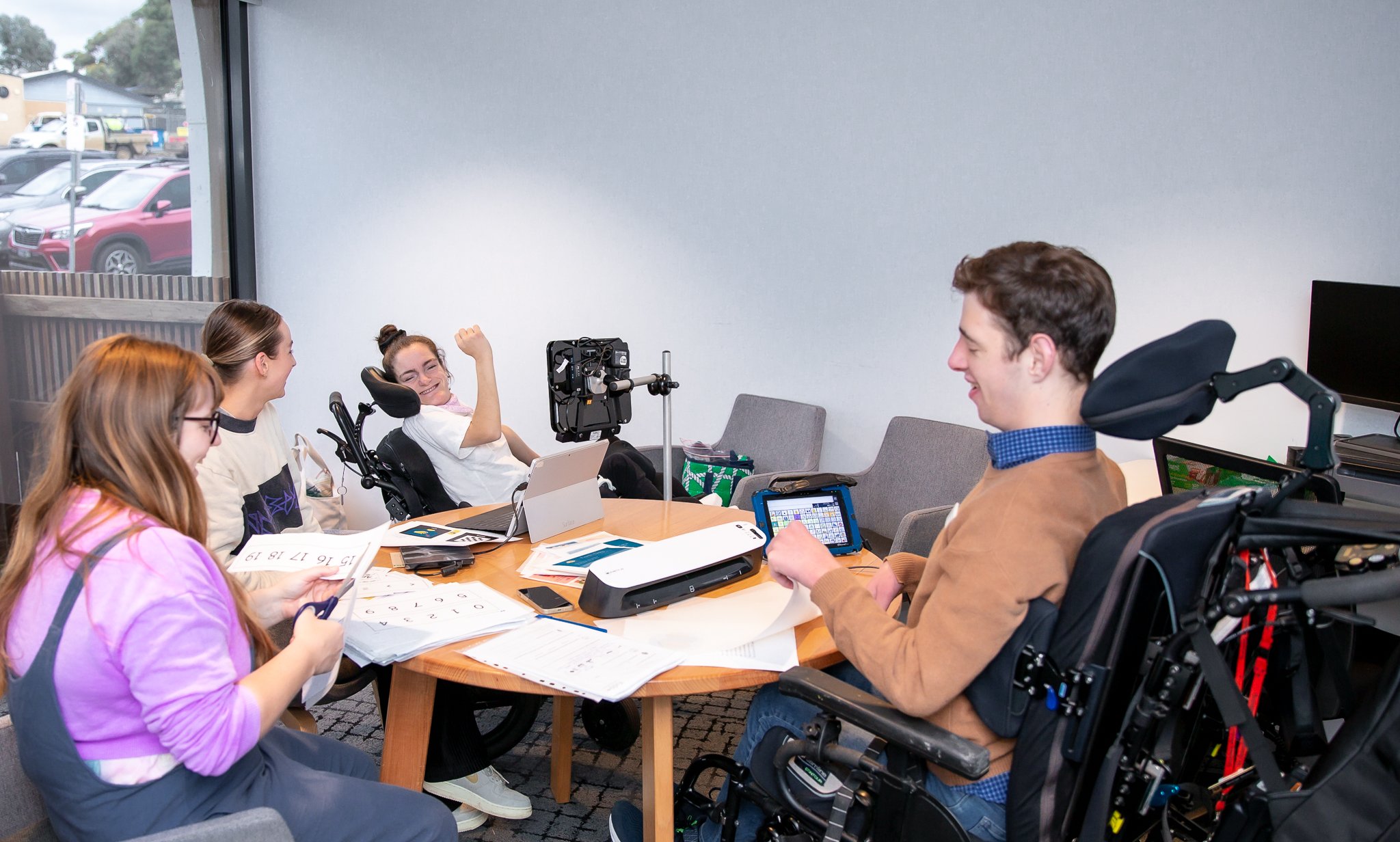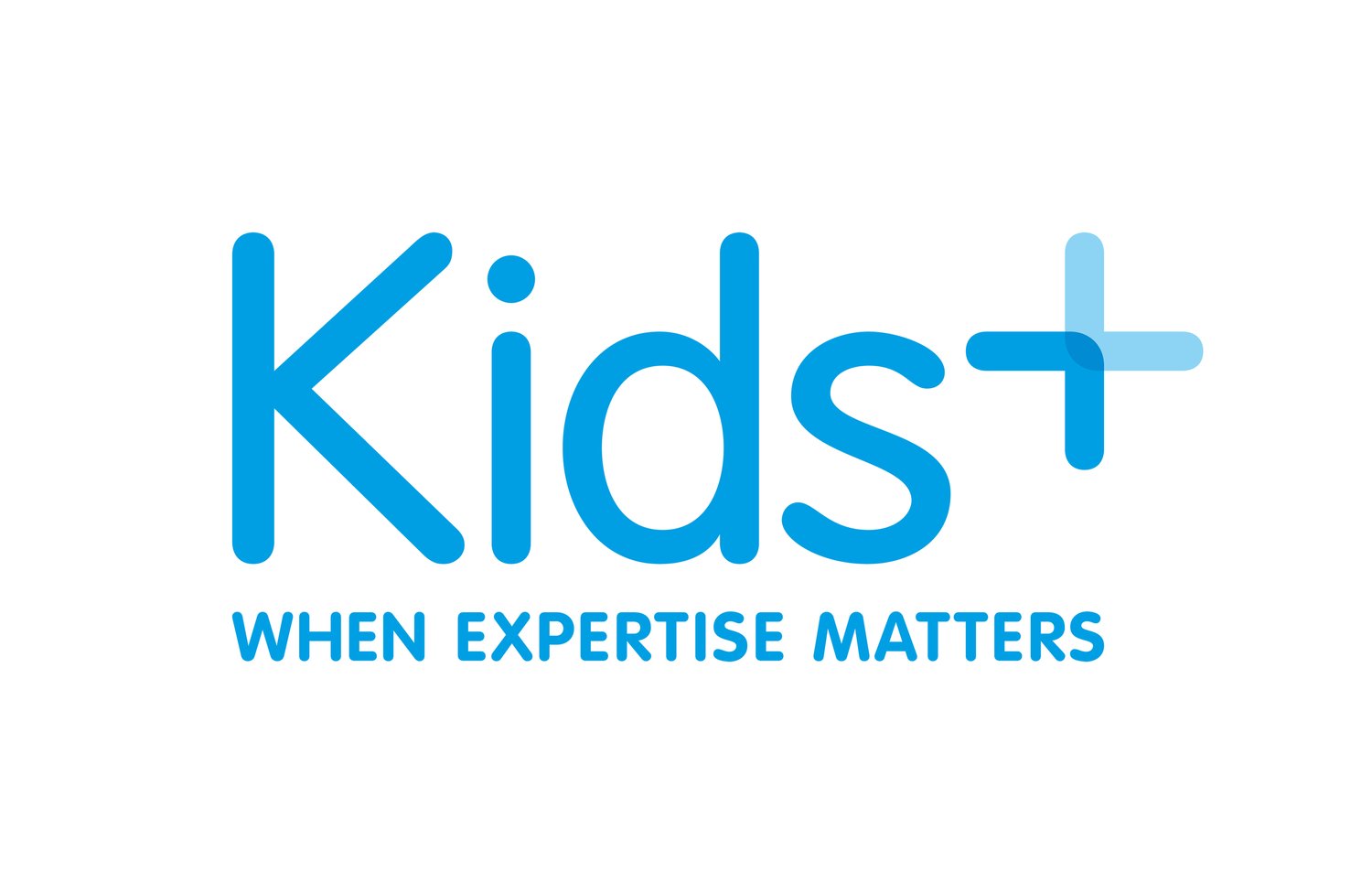
Fact Sheets
-
Occupational Therapists at Kids+ specialise in working with children from birth, during childhood, and adolescence with the aim of improving their play, independence skills and overall participation in their everyday activities.
Occupational Therapists can help your child develop their independence skills to participate more fully in the things they want and need to do at home, kinder/school and out in the community, through the use of everyday activities (occupations). Our team of Occupational Therapists are trained in child development as well as task and movement analysis to support identification of limitations or restrictions related your child's goals.
Occupational therapy incorporates the assessment and treatment of movement skills, functional hand use, play skills, sensory processing skills, functional vision and visual perceptual, and self-care skills. Programs are tailored to each individual and may include direct skills training, home activities and assistive technology or adaptations if required.
The aim of Occupational therapy intervention is to enable participation in everyday tasks, including:
Hand function and tool use: Supporting the developing of fine motor and hand skills necessary for kinder/school such as drawing/writing, cutting, typing and using technology such as switches and computer use to record ideas.
Play skills and leisure activities: Participating in recreation and leisure activities in the home, school and community environments.
Self-care Skills: Daily living tasks including dressing (buttons, zippers, shoes and clothing), self-feeding (finger feeding and use of utensils), toileting, bathing and grooming activities (showering, teeth brushing, hair brushing), as well as getting to and staying asleep.
Occupational therapy supports typically includes an individualized assessment, during which the child, family and occupational therapist work together to explore the child’s goals and customise therapy supports to improve the child’s ability to perform daily activities and reach the goals, as well as outcome measurement and evaluation to ensure that the goals are being met.
Occupational therapy services may also include evaluations of the child’s home and other environments (e.g. kinder, school), recommendations for adaptive equipment and training in its use, and guidance and education for family members and caregivers.
-
Physiotherapists at Kids+ specialise in working with children from birth, during childhood, and adolescence with the aim to improving mobility, physical activity, and well-being.
We believe that every child benefits from physical activity and that it supports a range of other areas of everyday life. Our team of physiotherapists are trained in child development and advanced movement analysis to support identification of limitations or restrictions related your child's goals. Programs are tailored to develop movement control and co-ordination and may include direct skills training, home activities and assistive technology or adaptations if required.
The aim of physiotherapy intervention is to make movement easier to:
increase independence with everyday activities and routines,
gain mobility (standing, walking, wheeled or powered mobility) for moving around your environment at home and in the community
develop more advanced motor skills for participation in physical activity and games for fun and recreation
facilitate participation in sport
reduce fatigue and injury
and improve health and fitness.
Physiotherapists can support participation in community and school physical activity by working alongside sport coaches, teachers, and clubs to enable your child’s involvement and active participation. If required, programs can be adapted, or equipment modified to meet your child’s individual needs.
Babies and Infants are learning new motor skills and we will work with you to support your baby’s early development. This may include areas like rolling, sitting, crawling, standing and walking. Physiotherapists can also advise on the best way to carry, move or transfer your child safely to reduce injury to yourself or your child.
-
Improved Daily Living- Therapeutic Supports
The premise for Social Work at Kids+ is to collaboratively assist your child and family to live their best life. Our Social Workers can work with your family and child’s therapy team to identify and develop a range of interventions to improve well-being, family/personal relationships and psychosocial outcomes in order to maximise your child’s quality of life and empower them to develop their full potential.
Social Work at Kids+ is child focused and family centered therefore available to support the needs of the child as well as the parent and caregiver. Social work can complement a child’s therapy team by working to identify and resolve complex barriers so that the focus can remain on the overall health and wellbeing of your family, assisting your child to reach their therapy goals.
Social Work at Kids+ can offer short-term counselling, as well as information and referral to community supports. Social Work can also offer capacity building therapy to support your child’s social and emotional goals (Theraplay and Marte Meo).
Short-term Counselling and Wellbeing Support
Our Social Workers can offer emotional support to families during challenging times. Our Social Workers is a person to talk to; give children and parents an opportunity to talk about their feelings, challenges and experiences and will listen without judgement. It can be helpful to confidentiality talk about such challenges, vent frustrations and bounce ideas off of a qualified professional who is removed from the situation. Together Social Work can assist you to develop coping strategies and support to adjust to having a child with a disability.
Social Work at Kids+ can offer confidential short term, responsive counselling to a child, sibling or parent. Our Social Worker can assist your family to explore stressors, coaching families through challenges and develop coping strategies. Should you need longer term supports Social Work will support you to link in with a suitable psychologist, family therapist or counsellor.
Enhanced Key Worker- Navigating and Coordinating community resources
Information and referral-
Social Work can meet with parents to get a better understanding of a family’s unique needs, source resources in the community and link families to essential supports. Social Work can also assist with the application and referral process.
Some things Social Work can assist with;
Support to understand your child’s NDIS plan and how to access and prioritise resources to meet identified goals
Supporting child/family life transitions
Provide information about carer supports, respite services and government benefits in order to sustain your caring role
Provide information about parenting support, family services, foster care and kindship care
Social Work can also assist to connect your family with specialist support relating to homelessness/housing insecurity, family violence and abuse, post traumatic events, grief and loss and cultural support
Provide linkages to community resources (family support, food relief, financial support, advocacy)
Marte Meo
The Marte Meo Method is a program that provides concrete and practical information to professionals, parents and carers about supporting the social and emotional development of children and adolescents in daily interaction moments. Marte Meo is a unique positively lead, relationship building and prevention-based form of educational counselling. It aims to build upon and reinforce the strengths of client, enhancing their ability to effectively communicate and connect with those around them. It has application to clients of all ages and all levels of need.
Theraplay ®
Theraplay is a dyadic child and family therapy. With the support of the Theraplay, parents learn to play with their child in a way that establishes felt safety, increases social engagement, expands arousal regulation, and supports the development of positive self-esteem for both the child and the parent.
-
A Kids + speech pathologist can help with understanding and support for all things communication and swallowing.
These are both really big areas, so to break it down, speech pathologists can support;
Speech- the way we say sound;
Using language- the words we think about and express to get our messages across;
Listening and understanding language- understanding the words we hear or see;
Using different forms of communication- gestures, sign, communication books or symbols, electronic communication devices;
Swallowing food and drink safely, this includes breast and bottle feeding.
Literacy- the skills needed to spell, read and write;
Interaction- communicating with others to form connections;
Voice- the quality of sound that comes out when we speak;
Fluency- stuttering
We love to support young people with things that matter most to them, and get parents and partners involved to support in a meaningful way. Speech Pathology at Kids + can look like individual or group sessions, recommending equipment such as communication books or electronic communication devices, supporting community participation at school, childcare, kindergarten and/or education and training for communication and mealtime partners.
All speech pathology assessment and treatment at Kids + considers all areas of a young person’s development and how they impact on communication and swallowing, including posture, tone, sensory processing, cognition, cardio-vascular and respiratory and gastrointestinal.
-
Support Coordination works creatively and resourcefully with families in how they utilise their support budgets to achieve their child’s goals.
Support coordination enables participants to:
maximise the value for money your child receives from their supports
genuinely exercise their choice and control
implement their plan
build a family’s own capacity to manage/direct their child’s supports
connect families to community and alternative support options
coordinate multiple supports and services
strengthen informal support networks
be better able to use the NDIS Participant Portal myplace
Kids+ Support Coordination is unique in that it sits within the therapy team, working alongside your child’s therapy team. Support Coordination works collaboratively with your child’s Key Worker to ensure all are on the same page in supporting your family to reach your child’s goals. Ease of communication reduces family stress with many of our family’s telling us that they much prefer having therapy and Support Coordination services under one roof, reducing the need to repeat themselves to another external service. Co-location naturally increases communication between your Support Coordinator, therapy team and your family, improving outcomes during the life your child’s NDIS Plan (can work together to quickly troubleshoot any issues) as well as at plan review stage when quality NDIS reports are collaboratively produced.
Support Coordination is offered to current Kids+ clients and their immediate family members. Kids+ Support Coordination is expanding and will be taking on new referrals in January 2020 with an experienced team of dedicated professionals that will compliment your current Kids+ supports. Speak to us now if you would like to know more.
-
AAC stands for “Augmentative and Alternative Communication”.
AAC encompasses methods, systems, tools and strategies to support a person who has difficulties communicating with speech alone.
Augmentative Communication is when we add something to the speech to make it clearer to the listeners. This can include using signs or pictures to clarify what you want to say.
Alternative Communication is when a different communication method is needed when we are unable to speak, or the listeners do not understand speech.
Communication is a fundamental human right. The purpose of AAC is to provide the person with a form of communication so that they can:
Express their needs and wants
Participate in making their own life choices and expressing their opinions
Make and maintain relationships.
Make connections with others at school, in the workplace and in the community.
Kids+ have advanced knowledge, skills, and resources for supporting AAC.
Our team can explore the multiple ways that your child uses to communicate and can provide additional strategies, tools, and equipment to expand and enhance their communication and interaction with others.
This may comprise of pictures and symbols, sign language or computerised devices that can support your child’s communication goals.

